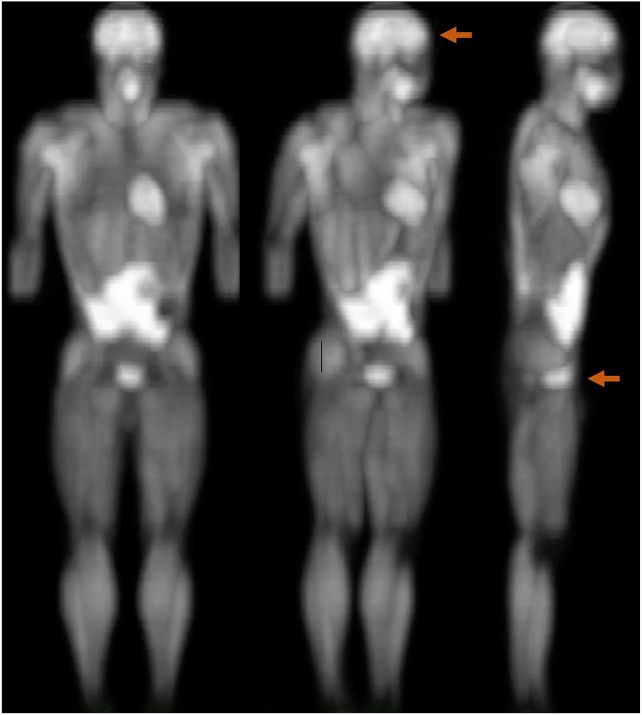January 02, 2025

If you're looking to improve your performance, both cognitively and physically, you need to start by giving a crap.
No, quite literally. Go to the toilet and empty your bowel. If you're about to compete in a triathlon, it will make you both faster and smarter, according to two recent studies.
The latest research involved 13 triathletes, a cognitive test called the Stroop test, and a magnesium oxide laxative.
The result? The athletes performed measurably better on the cognitive test after voiding their large intestines, a finding that suggests an underexplored link between the rectum and cognitive function. This potential link has interesting implications, not just for peak performance, but for understanding cognitive decline.
"The most striking finding of this study is the unequivocal improvement observed in Stroop test performance for all participants consuming magnesium oxide," writes a team of researchers led by biochemist Chen-Chan Wei of the University of Taipei in a new paper.
"Even in the absence of magnesium oxide, defecation led to improved Stroop test results for 9 out of 13 individuals."
A Stroop test is one that presents you with a visual of conflicting information. The word "red" might appear in blue text, for example; the test participant needs to say aloud the color of the text, not the color word that is written. It evaluates cognitive flexibility and response time.
A 2022 study found that patients with early-stage Parkinson's disease can exhibit mild cognitive impairment when constipated, suggesting a link between the rectum and the brain. Such a concept isn't without precedent. Your gut contains hundreds of millions of neurons, and the gut microbiome may play a role in your mood, as well as neurological and mental health disorders.
Wei and colleagues wanted to investigate the link for athletes. Triathlons, involving three different sports disciplines, are taxing on both mind and body. The athlete needs to make fast decisions to navigate the course, have the fortitude to last the distance, and in the process try to best their fellow athletes.
The researchers previously showed that having a poop before getting on a bike resulted in improved performance – and improved blood flow in the prefrontal cortex region of the brain – in triathletes. The next step, after establishing a link between an empty bowel and increased physical performance, was to try to identify if there was a similar link to cognitive performance.
"When you do exercise, especially long-distance exercise, your brain is going to be sending high amounts of commands to the muscles," explains physiologist Chia-Hua Kuo of the University of Taipei.
"Whether or not you can sustain muscle contraction is not really depending on whether your muscle has wrung out the energy, it's whether your brain is able to challenge your muscle."
Each of the 13 triathletes in the study participated in three sessions of Stroop testing. For the first session, the test was taken without a prior bowel movement. For the second session, after a careful diet, the test was administered an hour after a bowel movement. Finally, for the third session, the athletes were given magnesium oxide; they took the test 13 hours after taking the laxative, and an hour after defecation.
More than two thirds of participants performed better on the test with empty bowels in the second session. Intriguingly, 100 percent saw improvement after a laxative-aided defecation.
Although the sample size was small, the difference in performance between the sessions suggests that emptying one's bowels could be linked to improved cognition.
The link and the reasons for it have not been definitively established, but the researchers believe that it may have something to do with finite resources in the body. When you have material in your digestive tract, blood and oxygen are used to help break it down. With no material to digest, those resources can be used elsewhere.

In fact, insufficient resourcing during exercising is thought to be the cause of the well-known phenomenon of runners' diarrhea, in which athletes lose control of their bowels while engaged in intense exercise.
In a 2012 review, scientists found that "During physical exercise, the increased activity of the sympathetic nervous system redistributes blood flow from the splanchnic organs to the working muscles… A severely reduced splanchnic blood flow may frequently cause gastrointestinal ischemia."
That means that the body redirects blood away from the gastrointestinal organs to work on the exercise; and the reduced blood flow causes gastrointestinal pyrotechnics.
It's all connected in strange and wonderful ways. Or, as Kuo puts it: "Our spirit is not only inside the skull, but also in other parts. And the rectum is also part of the brain."
The researchers caution against taking laxative drugs. If you are having issues maintaining gastrointestinal regularity, seek help from a medical professional.
The findings have been published in Sports Medicine and Health Science.